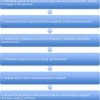Abstract
The ability to achieve a group consensus may be critical during specific activities throughout an Extension professional’s career. For example, it may be important to identify an advisory committee’s highest priorities or a group of stakeholders’ most important programmatic needs. The Delphi method has been recognized as a suitable alternative to interviews and formal meetings in certain circumstances. This 6-page fact sheet provides an overview of the Delphi method and suggestions for using this technique to support Extension programming. Written by Laura A. Warner and published by the UF Department of Agricultural Education and Communication, October 2014.
References
Basinger, A. R., McKenney, C. B., & Auld, D. (2009). Competencies for a United States horticulture undergraduate major: A national Delphi study. HortTechnology, 19(2), 452-458. https://doi.org/10.21273/HORTTECH.19.2.452
Brodeur, C. W., Higgins, C., Galindo-Gonzalez, S., Craig, D. D., & Haile, T. (2011). Designing a competency-based new county extension personnel training program: A novel approach. Journal of Extension, 49(3). https://doi.org/10.34068/joe.49.03.02
Callahan, B.J., Dobbins, T.R., King, D.R., Paige, W.D., & Wolak, F.J. (2010). Establishing statewide uniformity within the South Carolina master gardener program. Journal of the NACAA, 3(1). Retrieved from https://www.nacaa.com/file.ashx?id=298ad574-8da5-4eb9-8b21-b563be6bc7bc
Campos-Climent, V., Apetrei, A., & Chaves-Avila, R. (2012). Delphi method applied to horticultural cooperatives. Management Decision, 50(7), 1266-1284. https://doi.org/10.1108/00251741211247003
Conner, N. W., Roberts, T. G., & Harder, A. (2013). Competencies and experiences needed by entry level international agricultural development practitioners. Journal of International Agricultural and Extension Education, 20(1), 19 – 32. https://doi.org/10.4148/2831-5960.1243
Dalkey, N. C. (2002). Toward a theory of group estimation. In H. A. Linstone & M. Turoff (Eds.), The Delphi method: Techniques and applications [Electronic version] (pp. 231-256). Newark, NJ: New Jersey Institute of Technology.
Dalkey, N. C. (1969). The Delphi method: An experimental study of group opinion. Santa Monica, CA: The Rand Corporation. https://doi.org/10.1016/S0016-3287(69)80025-X
Delbecq, A. L., Van de Ven, A. H., & Gustafson, D. H. (1975). Group techniques for program planning : A guide to nominal group and Delphi processes. Glenview, Ill.: Scott, Foresman.
Dillman, D. A. (2007). Mail and Internet Surveys: The Tailored Design Method. (2nd ed.), Hoboken, NJ: John Wiley Co.
Dooley, K. E. (2007). Viewing agricultural education research through a qualitative lens. Journal of Agricultural Education, 48(4), 32-42. https://doi.org/10.5032/jae.2007.04032
Geist, M. R. (2010). Using the Delphi method to engage stakeholders: A comparison of two studies. Evaluation and Program Planning, 33(2), 147-154. https://doi.org/10.1016/j.evalprogplan.2009.06.006
Glaser, B. G., & Strauss, A. L. (1967). The discovery of grounded theory: Strategies for qualitative research. New York: Aldine De Gruyter. https://doi.org/10.1097/00006199-196807000-00014
Harder, A., Place, N. T., & Scheer, S. D. (2010). Towards a competency-based extension education curriculum: A Delphi study. Journal of Agricultural Education, 51(3), 44–52. https://doi.org/10.5032/jae.2010.03044
Hsu, C., & Sandford, B. A. (2007). The Delphi Technique: Making sense of consensus. Practical Assessment, Research & Evaluation. 12(10). Retrieved from https://doi.org/10.7275/pdz9-th90
Kroth, M., & Peutz, J. (2011). Workplace issues in extension—a Delphi study of extension educators. Journal of Extension, 49(1). https://doi.org/10.34068/joe.49.01.17
Linstone, H. A., & Turoff, M. (Eds.). (2002). The Delphi method: Techniques and applications [Electronic version]. Newark, NJ: New Jersey Institute of Technology.
Martin, A. G., & Frick, M. J. (1998). The Delphi technique: an informal history of its use in agricultural education research since 1984. Journal of Agricultural Education, 39(1), 73-79. https://doi.org/10.5032/jae.1998.01073
Morse, R. S., Brown, P. W., & Warning, J. E. (2006). Catalytic leadership: Reconsidering the nature of Extension's leadership role. Journal of Extension, 44(2). Retrieved from https://archives.joe.org/joe/2006april/a9.php
Schindler, K. H. (2013). Delphi Technique. Retrieved from http://www.extension.org/pages/61541/delphi-technique#.VA9MgRazNKY
Shinn, G. C., Wingenbach, G. J., Briers, G. E., Lindner, J. R., & Baker, M. (2009). Forecasting doctoral–level content in international agricultural and extension education–2010: Viewpoint of fifteen engaged scholars. Journal of International Agricultural and Extension Education, 16(1), 57–71. https://doi.org/10.5191/jiaee.2009.16105

